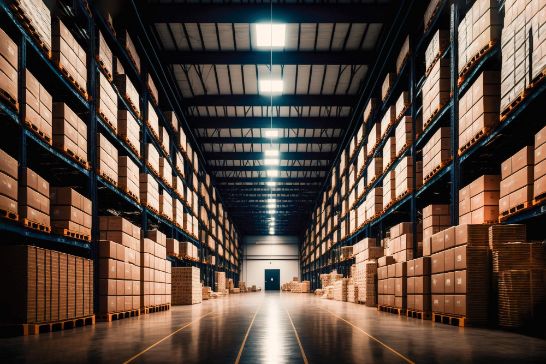Nowadays, with the rapid expansion of global trade and increasing consumer demands, the logistics industry is also undergoing a major transformation. An important part of this transformation is innovations in storage services. Warehousing, a critical element of the logistics chain, is an important stage where materials are stored, managed and distributed safely. This article will focus on the evolution of warehousing services in modern logistics, their advantages and future potential.

I. Evolution of Storage Services:
Storage in logistics has undergone a significant evolution over time and has been shaped by advanced technology, strategic planning and continuous improvements. The journey from the first storage systems to today’s smart storage solutions has increased the efficiency of logistics processes and reduced costs.
A. Traditional Storage Methods:
Traditional warehousing methods involved handling operations, manual inventory tracking, and limited automation. These methods could reduce storage capacity and cause errors, limiting warehouse efficiency.
B. Automation and RFID Technology:
With the advancement of technology, the storage industry has turned to innovative technologies such as automation and RFID (Radio Frequency Identification). Automated warehouse systems, pallet handling machines and RFID tagging have optimized and accelerated warehouse operations and significantly reduced error rates.
II. Advantages of Modern Storage Services:
A. Efficiency and Speed:
The integration of technologies such as automation, artificial intelligence and big data analytics has provided a huge increase in speed and efficiency in storage processes. Smart warehouse systems play an important role in meeting customer expectations by working more precisely and effectively in demand forecasts and inventory management.
B. Security and Accuracy:
Modern storage systems include advanced security measures to increase the security of stored materials. Additionally, automatic inventory tracking reduces errors and increases accuracy.
C. Flexibility and Scalability:
Today’s storage systems offer the ability to quickly adapt to changing demands. Flexible warehouse arrangements and scalability allow businesses to grow and adapt to changing market conditions.
III. Future Potentials:
A. Robotic Applications:
In the future, robotic applications are expected to become more common in the storage industry. Intelligent robots will be used to move, sort and place materials, further optimizing warehouse operations.
B. Green Storage:
Sustainability is one of the future storage trends. Green storage practices include elements such as energy efficiency, recycling and environmentally friendly packaging. This approach aims to reduce the environmental impact of the logistics sector.
Warehousing services in modern logistics is a sector that is constantly evolving. With the influence of technology, storage processes have become more efficient, safe and flexible. In the future, apply more automation, robotics
